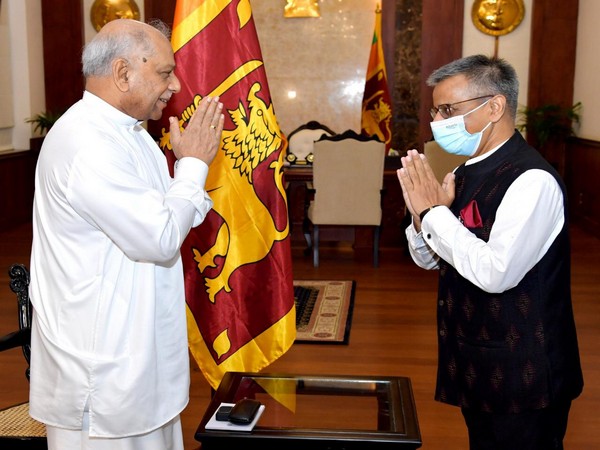Indian High Commissioner in Sri Lanka Gopal Baglay paid a courtesy call to newly-elected Prime Minister of Sri Lanka Dinesh Gunawardena on Tuesday to strengthen the longstanding ties between both nations.
“High Commissioner paid a courtesy call on Hon’ble PM @DCRgunawardena. Conveyed greetings from the leadership, Government and people of #India,” tweeted the Indian Embassy in Sri Lanka.
The High Commissioner also thanked the PM for his guidance in various capacities to strengthen the close ties between India and Sri Lanka in all areas of engagement.
High Commissioner also thanked the PM for his whole-hearted appreciation for #India’s unprecedented support to the people of #SriLanka, while he conveyed working closely.
India has been at forefront of extending economic assistance to Sri Lanka as per what they require and we are one of the countries that have provided the maximum amount of assistance at the time of need.
Since the beginning of 2022, Sri Lanka has experienced an escalating economic crisis and the government has defaulted on its foreign loans. The United Nations warned that 5.7 million people “require immediate humanitarian assistance.”
With many Sri Lankans experiencing extreme shortages of essentials including food and fuel, peaceful protests began in March. The protests led then-Prime Minister Mahinda Rajapaksa to resign on May 9, and his brother, President Gotabaya Rajapaksa, to flee the country on July 13 and resign the following day.
Ranil Wickremesinghe became acting president, and parliament elected him as the new president on July 20 with the support of the Rajapaksas’ political party, the Sri Lanka Podujana Peramuna. He had previously described some protesters as “fascists” and declared a state of emergency on July 18.
On July 21, Wickremesinghe issued an order to “call out with effect from July 22, 2022, all the members of the Armed Forces . . . for the maintenance of public order.”
Under emergency powers, the president can override, amend, or suspend a provision of any law, except the Constitution. Emergency powers can be used to detain people while bypassing the ordinary process of the courts and have repeatedly been used in the past to enable human rights violations.


